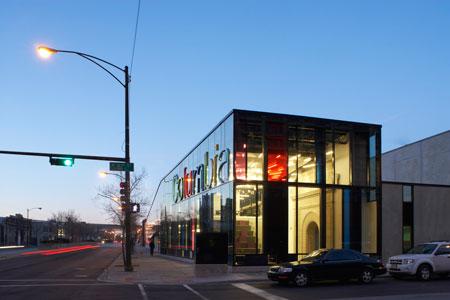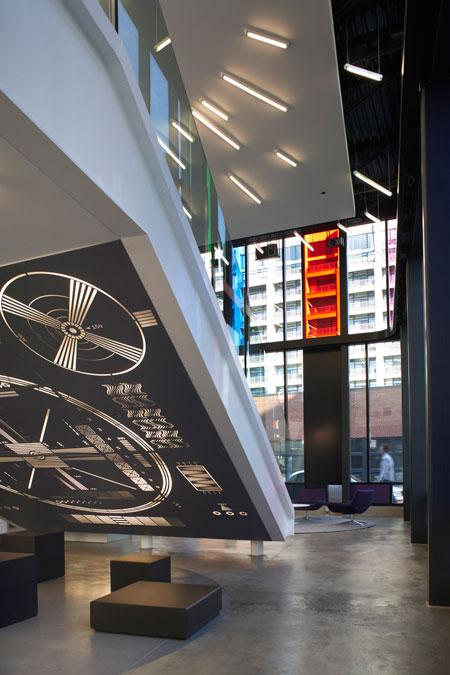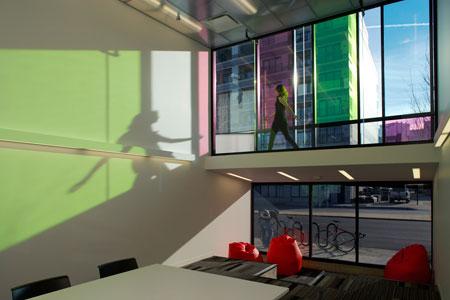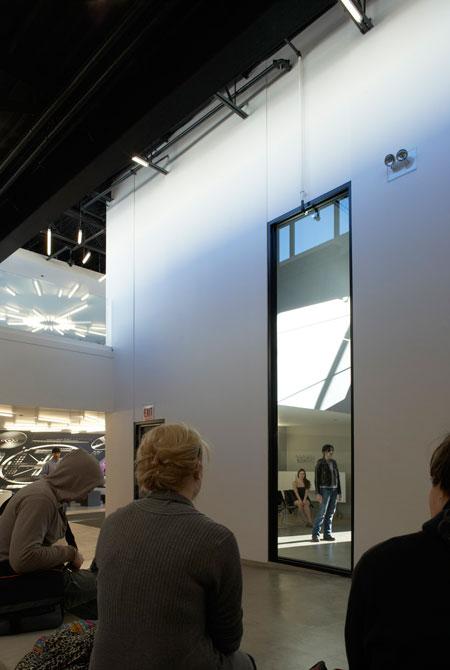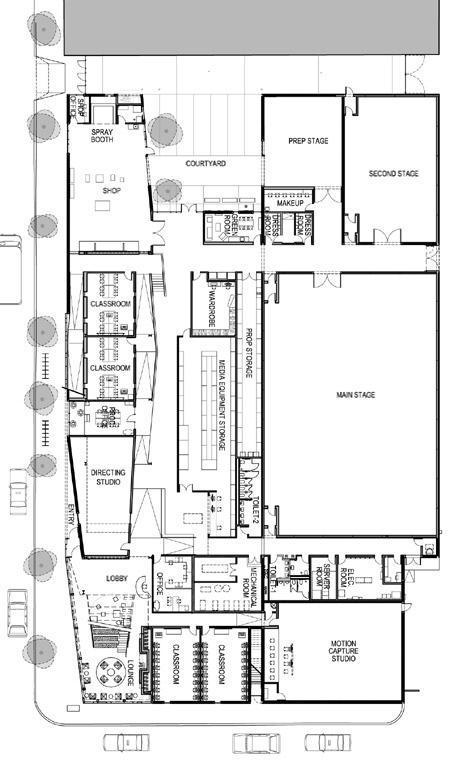Columbia College Chicago Media Production Center
Spread across 22 buildings in Chicago's South Loop, Columbia College Chicago considers itself "the largest and most diverse private arts and media college in the nation." One of the school's three new buildings in its 2010 Master Plan is the Media Production Center (MPC). Studio Gang Architects answered some questions about the latest addition to the expanding campus.
(Photos: Steve Hall © Hedrich Blessing)
What were the circumstances of receiving the commission for this project?
We were part of a shortlist of architects invited to submit our qualifications. The list was narrowed, and we were interviewed several times in various settings, including a tour of the client’s site and the client visiting our office.
Can you describe your design process for the building?
How does the completed building compare to the project as designed? Were there any dramatic changes between the two and/or lessons learned during construction?
There were modifications to the original design, but they were slight and often times ended up enhancing the project rather than diminishing it. For example, the need to reduce some of the glass sizes in the curtain wall for cost reasons led to the idea of introducing the “color bar” pattern into the façade. The added horizontal elements gave the pattern more structure and strengthened its connection to the building’s content.
How does the building compare to other projects in your office, be it the same or other building types?
How does the building relate to contemporary architectural trends, be it sustainability, technology, etc.?
The building introduces innovative technologies for reducing energy use including its air supply system for the sound stages. It achieves a LEED gold certification, which is uncommon in this building type.
Are there any new/upcoming projects in your office that this building’s design and construction has influenced?
The degree to which we harnessed natural light for dramatic effect in this building will definitely influence our future buildings.
E-mail interview conducted by John Hill
Columbia College Chicago
Media Production Center
2009
Chicago, IL
Client
Columbia College Chicago
Architect
Studio Gang Architects
Chicago
Design Principal
Jeanne Gang
Managing Principal
Mark Schendel
Project Architect
Margaret Cavenagh
Project Manager
William Emmick
Project Team
Kara Boyd
Structural Engineer
Magnusson Klemencic Associates
MEP/FP Engineer
Sachin Anand, dbHMS
Spaceco Inc.
Landscape Architect
Site Design Group
Lighting Designer
Barbizon Lighting Company
Interior Designer
Studio Gang Architects
Contractor
W.E. O'Neil
Construction Manager
William Emmick
Rob Ruehl
Brad Johnson
Others
Chicago Flyhouse Inc.
Sieben Energy Associates
Threshold Acoustics
Building Area
36,000 SF

